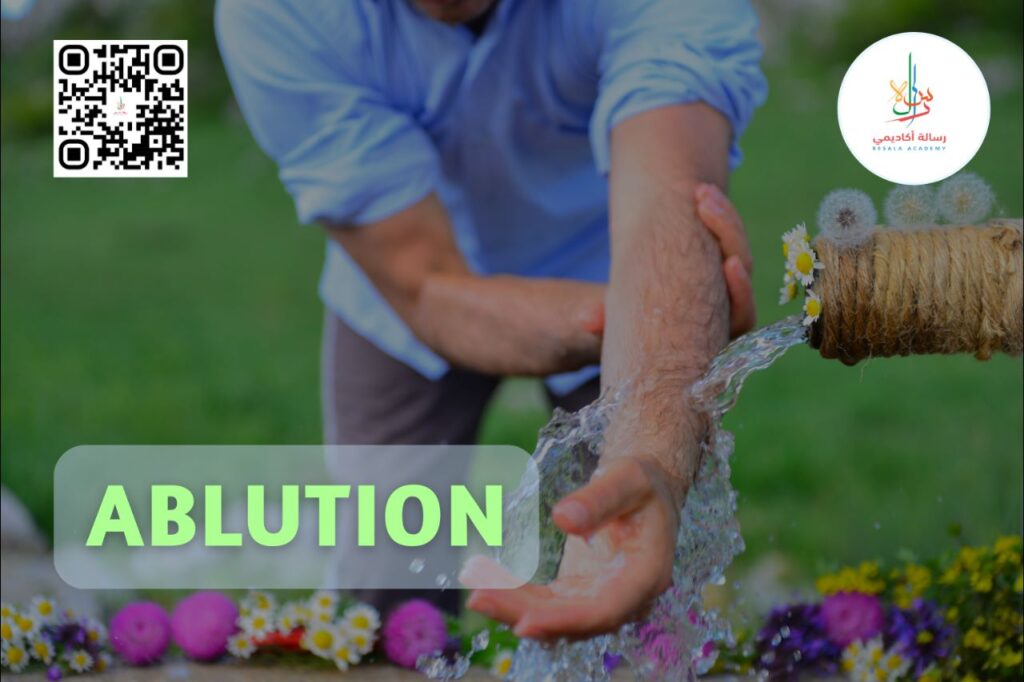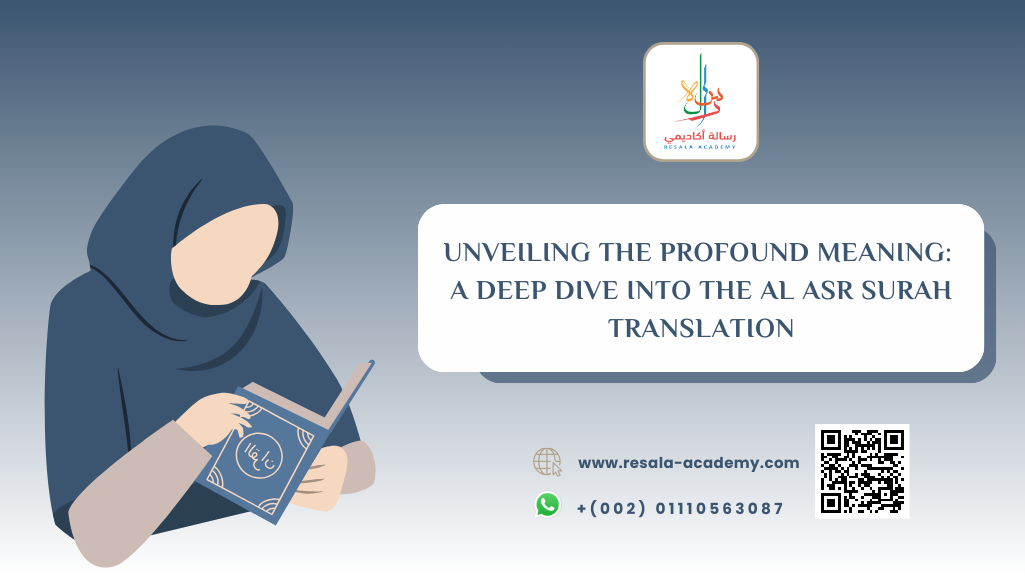Table of Contents
Ultimate Guide: Wudu Steps
As a Muslim, fulfilling the obligations of wudu is an important part of our daily lives that not only serves to keep us spiritually connected with Allah but also provides numerous physical and mental health benefits. While it may seem easy to those more practiced in the practice, understanding each step with its various requirements can be daunting for those new to this ritualistic practice. That’s why we’ve created this ultimate guide on Wudu steps—to provide an in-depth look at what exactly needs to be done, how it should be performed, and why it is essential to Muslims around the world. Follow along as we navigate through all eight steps of wudu while providing helpful tips and reminders throughout!
يَا أَيُّهَا الَّذِينَ آمَنُوا إِذَا قُمْتُمْ إِلَى الصَّلَاةِ فَاغْسِلُوا وُجُوهَكُمْ وَأَيْدِيَكُمْ إِلَى الْمَرَافِقِ وَامْسَحُوا بِرُءُوسِكُمْ وَأَرْجُلَكُمْ إِلَى الْكَعْبَيْنِ ۚ وَإِنْ كُنْتُمْ جُنُبًا فَاطَّهَّرُوا ۚ وَإِنْ كُنْتُمْ مَرْضَىٰ أَوْ عَلَىٰ سَفَرٍ أَوْ جَاءَ أَحَدٌ مِنْكُمْ مِنَ الْغَائِطِ أَوْ لَامَسْتُمُ النِّسَاءَ فَلَمْ تَجِدُوا مَاءً فَتَيَمَّمُوا صَعِيدًا طَيِّبًا فَامْسَحُوا بِوُجُوهِكُمْ وَأَيْدِيكُمْ مِنْهُ ۚ مَا يُرِيدُ اللَّهُ لِيَجْعَلَ عَلَيْكُمْ مِنْ حَرَجٍ وَلَٰكِنْ يُرِيدُ لِيُطَهِّرَكُمْ وَلِيُتِمَّ نِعْمَتَهُ عَلَيْكُمْ لَعَلَّكُمْ تَشْكُرُونَ
Wudu Quran Verse
O ye who believe! when ye prepare for prayer, wash your faces, and your hands (and arms) to the elbows; Rub your heads (with water); and (wash) your feet to the ankles. If ye are in a state of ceremonial impurity, bathe your whole body. But if ye are ill, or on a journey, or one of you cometh from offices of nature, or ye have been in contact with women, and ye find no water, then take for yourselves clean sand or earth, and rub therewith your faces and hands, Allah doth not wish to place you in a difficulty, but to make you clean, and to complete his favour to you, that ye may be grateful.
Wudu Quran Verse
Requirements for Wudu
Before we get started, it’s important to know the basic requirements for Wudu. First and foremost, it is essential that a Muslim has the intention of performing Wudu before beginning. Additionally, one must be in a state of ritual purity before starting. This means that if any impurity is present (for example: urine or feces), then one must clean their body and clothing first with water before beginning wudu. Additionally, one must have access to clean water on which they will perform wudu—it is not permissible to use water that has been previously used by someone else or contains visible impurities.
Steps of Wudu
Step 1: Niyyah (Intention)
The first step in performing wudu is known as “Niyyah” (intention). This involves having the intention to perform wudu and make a firm resolve to obey Allah in this act of worship. It is important to remember that simply intending in your heart alone is not enough—you must verbalize it as well. An example of how one might verbally express their intention could be:
“I intend to perform Wudu, seeking nearness to Allah SWT.”
Step 2: Wash Hands
Once you have made your Niyyah, it’s time to start washing! Begin by rinsing your hands three times with clean water, rubbing them together while doing so. Make sure you reach between your fingers and thumbs during this process. This step symbolizes the importance of cleanliness before beginning wudu and is one of the main ways of cleaning oneself in Islam.
Step 3: Rinse Mouth
The next step is to rinse your mouth three times with a handful of water, making sure to reach all areas inside your mouth (including the gums and back of your tongue). Swallowing some of this water as you are doing so is permissible, but it’s important not to do it excessively so that none of the water remains after completing this process. Again, this step underscores the importance of cleanliness before performing wudu.
Step 4: Clean Nostrils
After rinsing your mouth, you’ll want to move on to cleaning your nostrils. To do this, take a handful of water in one hand and snort it up into your left nostril three times before repeating the same with the right nostril. Make sure to rub both sides of your nose as you’re doing so. This step is done to ensure that any impurities from inside your nose are removed prior to performing wudu.
Step 5: Wash Face
The fifth step in completing wudu involves washing the face—from the hair-line all the way down to the chin and from one earlobe to the other. Here, you’ll want to use enough water so that it covers your entire face and make sure not to miss any spots! Again, like the previous steps, this step is designed to ensure that any impurities on the face are completely washed off.
Step 6: Wash Arms
The sixth step in wudu involves washing both arms three times up to and including the elbows. This includes rubbing your hands over each arm from fingertips to elbows, ensuring that all areas of the arm are cleaned before continuing with other parts of wudu. Make sure you use enough water so that it covers your entire arm from wrist to elbow and remember not to forget the spaces between your fingers!
Step 7: Wipe Head
Once you have finished washing your arms, move on to wiping the head. Take a handful of water and pour it over your head (starting at your forehead) so that it covers your entire scalp. Then, use the remaining water to wipe the top and back of your head until it is completely dry. This step symbolizes purity coming from above, as well as humility before Allah SWT.
Step 8: Wash Feet
The final step in performing wudu is to wash both feet three times up to and including the ankles. Make sure you use enough water so that it covers your entire foot from toes to ankle and don’t forget to rub between each toe! Once again, this step ensures that any impurities on the feet are removed prior to prayer.
Once these 8 steps have been completed, one’s wudu is considered valid and they may proceed to offer prayer. May Allah SWT accept all of our acts of worship and guide us to obey His commands with sincerity and faithfulness. Ameen.
Practical Video about Wudu
Precautions for Wudu
When performing wudu, it’s important to take certain precautions in order to make sure that the wudu is valid and accepted by Allah SWT. This includes being mindful of the following:
1. Make sure you use clean water for each step of wudu;
2. Make sure you don’t miss any spots when washing or wiping your body parts;
3. Ensure that there are no obstructions (such as dirt or stones) between you and the water source;
4. If necessary, use a mirror to ensure that all areas are washed properly; and
5. Use enough water so that it covers all parts of your body when washing or wiping each part.
With these precautions in mind, one can have confidence that their wudu is valid and accepted by Allah SWT. May He forgive us and guide us all to Him. Ameen.
Common Mistakes during Wudu
In addition to taking the necessary precautions, it’s important to also avoid making common mistakes when performing wudu. These include:
1. Not using enough water;
2. Neglecting any part of the body;
3. Wiping too hard when wiping one’s head or feet; and
4. Forgetting to wash between each finger or toe.
By avoiding these mistakes, one can ensure that their wudu is valid and accepted by Allah SWT. May He guide us all on the Straight Path and forgive us for our shortcomings. Ameen.
Benefits of Proper Wudu
Salah, or daily prayer, is an important pillar of the Islamic faith. Before partaking in this ritual it is essential to complete your wudu in a proper manner. Wudu involves washing certain parts of the body such as hands, face, and feet with water while reciting certain duas. Although it takes only a few minutes to do so, there are abundant spiritual and physical benefits associated with performing wudu correctly. Research has shown that due to its purifying effect regular practice of wudu can profoundly elevate one’s mental well-being and sense of calmness. Furthermore, the repetitive motions involved can help maintain muscle flexibility, especially in old age. Engaging in wudu playfully also provides an avenue for teaching young children valuable lessons about cleanliness and hygiene. Adhering to the Islamic guidelines pertaining to wudu is consequently a rewarding experience both spiritually and physically!
Finally, it’s important to mention the benefits of performing wudu correctly. Aside from its religious significance and importance, proper wudu can also help one to stay clean and ensure that any dirt or impurities are removed from their body prior to prayer. Proper wudu can also serve as a reminder of Allah SWT and His greatness—leading one closer in their relationship with Him and increasing their faithfulness and love for Him.
We ask Allah SWT to accept our acts of worship and forgive us for any shortcomings we may have when performing them. May He guide us all on the Straight Path, Ameen.
Want to learn more bout Islamic teaching? Join Resala Academy
Join Resala Academy and get access to our comprehensive Islamic Studies curriculum. With Resala Academy, you can learn about the fundamentals of your faith, deepen your understanding of Islamic topics, and gain confidence in expressing yourself through Quran memorization and recitation.
Signing off with prayers for Allah’s guidance, mercy and blessings upon us all. May He accept our acts of worship and forgive us for any shortcomings we may have when performing them. Ameen.
May Allah SWT guide us to always follow His commands with sincerity and faithfulness. May He grant us knowledge that leads us closer towards Him and increase our love for Him. Ameen. Thank you for reading this article about the importance of wudu
FAQ
Q: What is wudu?
A: Wudu is the Islamic practice of cleansing oneself before prayer. It involves washing the hands, face, and feet while reciting certain duas with the intention of purifying one’s body and spirit for prayer.
Q: How often should I perform wudu?
A: You should perform wudu every time you wish to offer salah (daily prayer). A full wudu will need to be performed each day for five daily prayers if they are offered in congregation or at different times on the same day.
Q: Are there any benefits associated with performing wudu correctly?
A: Yes! There are both spiritual and physical benefits associated with performing wudu correctly. Not only does it prepare one spiritually for salah (daily prayer), but its repetitive motions can also help maintain muscle flexibility, especially in old age. Additionally, regular practice of wudu can profoundly elevate one’s mental well-being and sense of calmness.
Q: What are some common mistakes to avoid when performing wudu?
A: There are several common mistakes that people make when performing wudu. These include not washing the hands thoroughly; not rinsing out the mouth properly; not cleanly wiping off the face; not washing between the toes; covering only part of the head when wiping it; and not washing both feet to the ankles. It is important to make sure that these steps are completed properly in order for wudu to be valid.
Q: What should my intention be when performing wudu?
A: When performing wudu, one should have the intention of preparing oneself spiritually and physically for prayer. This involves purifying oneself with water while also reciting certain duas and developing a deeper relationship with Allah SWT. With this sincere intention, one can gain immense spiritual benefits from performing wudu correctly. May Allah SWT guide us all on the Straight Path! Ameen.
Are there any duas or prayers I should recite during wudu?
Upon looking at the water, it is recommended to say the following:
بِسْمِ اللّٰهِ وَبِاللّٰهِ اَلْحَمْدُ لِلّٰهِ الَّذِىْ جَعَلَ الْمَاۤءَ طَهُوْرًا وَلَمْ يَجْعَلْهُ نَجِسًا۔
Duaa Wudu Duaa
Bismillahi wa billahi wal hamdu lil lahil lazi ja'alal ma'a tahura wa lam yaj alhu najisa. I begin my ablution in the Name of Allah. All praise is due to Allah, Who made water purifying, and not najis.
Duaa Wudu Duaa
While washing the hands before performing Wudhu, one should say:
اَللّٰهُمَّ اجْعَلْنِىْ مِنَ التَّوَّابِيْنَ وَاجْعَلْنِىْ مِنَ الْمُتَطَهِّرِيْنَ۔
Duaa Wudu Duaa
Alla hummaj alni minat tawwabina waj alni minal mutatah hirin. O Lord! Make me of those who repent and purify themselves.
Duaa Wudu Duaa
While rinsing the mouth one should say:
اَللّٰهُمَّ لَقِّنِىْ حُجَّتِىْ يَوْمَ اَلْقَاكَ وَاَطْلِقْ لِسَانِىْ بِذِكْرَاكَ۔
Duaa Wudu Duaa
Alla Humma laq qini hujjati yawma alqaka wa atliq lisani bizikrika. O Lord! Dictate to me the principles of faith on the Day I meet You, and make my tongue fluent with Your remembrance.
Duaa Wudu Duaa
While washing the nose one should say:
اَللّٰهُمَّ لَا تُحَرِّمْ عَلَىَّ رِيْحَ الْجَنَّةِ وَاجْعَلْنِىْ مِمَّنْ يَشَمُّ رِيْحَهَا وَرَوْحَهَا وَطِيْبَهَا۔
Duaa Wudu Duaa
Alla humma la tuharrim 'alaya rihal jannati waj 'alni mim man yashummu riha ha wa rawha ha wa tiba ha. O Lord! Do not deprive me of the fragrance of Paradise, and make me of those who smell its fragrance and per fume.
Duaa Wudu Duaa
While washing the face, one should say:
اَللّٰهُمَّ بَيِّضْ وَجْهِىْ يَوْمَ تَسْوَدُّ الْوُجُوْهُ وَلَا تُسَوِّدْ وَجْهِىْ يَوْمَ تَبْيَضُّ الْوُجُوْهُ۔
Duaa Wudu Duaa
Alla humma bayyiz wajhi yawma taswaddufihil wujuh wala tusawwid waj hi yawma tabyazzul wujuh. O Lord! Make my face bright on the Day when the faces will turn dark. Do not darken my face on the Day when the face s are bright.
Wudu Wudu Duaa
While pouring water over the right elbow, one should say:
اَللّٰهُمَّ اَعْطِنِىْ كِتَابِىْ بِيَمِيْنِىْ وَالْخُلْدَ فِى الْجِنَانِ بِيَسَارِىْ وَحَاسِبْنِىْ حِسَابًا يَسِيْرًا۔
Duaa Wudu Duaa
Alla humma a'tini kitabi bi yamini wal khulda fil jinani bi yasari wa hasibni hisaban yasira. O Lord! Give my book of deeds in my right hand, and a permanent stay in Paradise on my left, and make my reckoning an easy one.
Wudu Wudu Duaa
While pouring water over the left elbow, one should say:
اَللّٰهُمَّ لَا تُعْطِنِىْ كِتَابِىْ بِشِمَالِىْ وَلَا مِنْ وَرَاۤءِ ظَهْرِىْ وَلَا تَجْعَلْهَا مَغْلُوْلَةً اِلٰى عُنُقِىْ وَاَعُوْذُ بِكَ مِنْ مُقَطَّعَاتِ النِّيْرَانِ۔
Duaa Wudu Duaa
Alla humma la tutini kitabi bishimali wala min wara'i zahri wala taj alha maghlu latan ila unuqi wa a'uzu bika min muqat ta'atin niran. O Lord! Do not give my book of deeds in my left hand, n or from behind my back, nor chain it to my neck. I seek refuge in You from the Hell-fire.
Duaa Wudu Duaa
Conclusion
Wudu is an essential part of the Islamic faith and is a beautiful practice that brings us closer to Allah SWT. It serves as a reminder of His greatness, and it can also help maintain physical cleanliness and hygiene. We should remember to always perform wudu with the proper intention in order to truly benefit from its spiritual and physical benefits. May Allah SWT accept our acts of worship and forgive us for any shortcomings we may have when performing them. Ameen. Thank you for reading this article about the importance of wudu!
Want more information on Islamic topics? Join Resala Academy and get access to our comprehensive Islamic Studies curriculum! With Resala Academy, you can learn about the fundamentals of your faith, deepen your understanding of Islamic topics, and gain confidence in expressing yourself through Quran memorization and recitation. Sign up now and don’t miss out on these amazing learning opportunities! We ask Allah (SWT) to guide us all and accept our acts of worship. Ameen.




